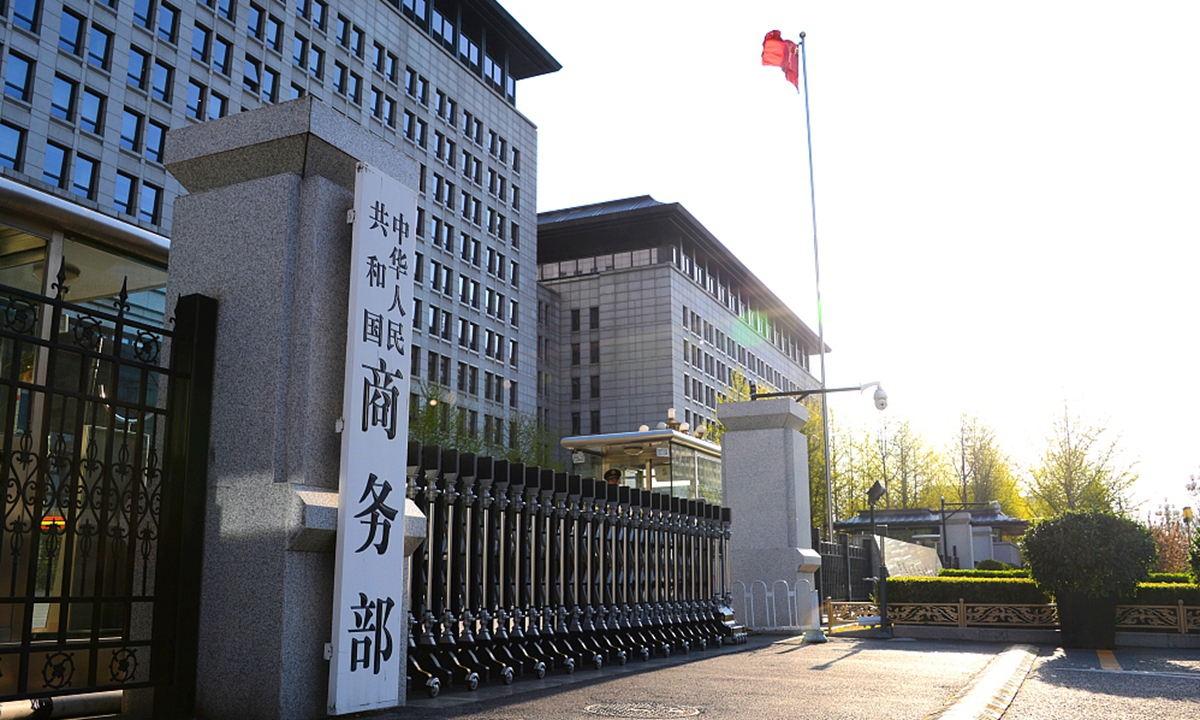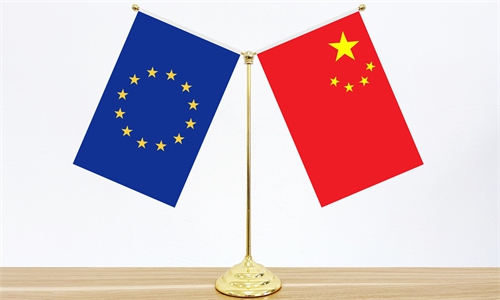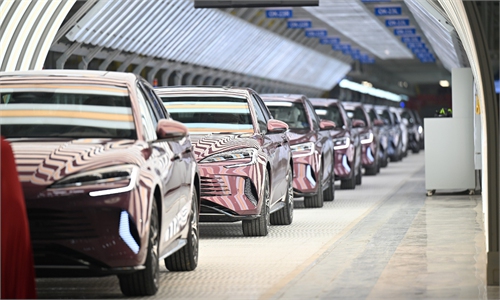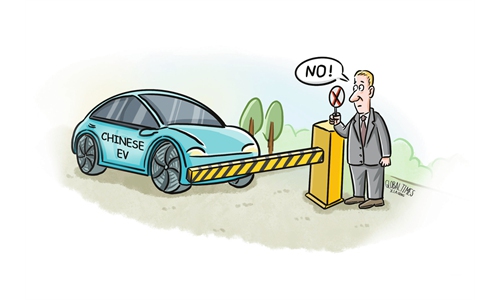China 'does not accept' EU's final ruling on anti-subsidy probe into Chinese EVs, files WTO suit over the matter: MOFCOM

The Ministry of Commerce Photo: VCG
China "does not recognize nor accept" the EU's final ruling on the anti-subsidy investigation into China-made electric vehicles (EVs) and has filed a suit at WTO under its dispute settlement mechanism, a spokesperson from China's Commerce Ministry said on Wednesday, vowing the country will take "all necessary measures" to firmly safeguard the legitimate rights and interests of Chinese companies.
On Tuesday (EU time), the European Commission concluded its anti-subsidy investigation by imposing definitive countervailing duties on imports of battery electric vehicles (EVs) from China for a period of five years, the commission said in a press release seen on its website on Tuesday.
Among the mainly targeted three companies, Shanghai-based carmaker SAIC Motor Corp, faces 35.3 percent additional tariffs on top of the existing 10 percent, Geely Automobile Holdings Ltd is charged with 18.8 percent, and BYD Co is hit by 17 percent additional tariffs.
Other Chinese EV makers face an average duty of 20.7 percent, with a maximum of 35.3 percent for those deemed "non-cooperative," according to a document seen in the Official Journal of the EU.
The duties will enter into force on the day following publication in the Official Journal, it said.
"We have noticed the statement issued by the EU side. China has repeatedly pointed out there are many practices in the investigation that are simply unjustifiable and incompliant with the rules. The nature of the investigation is unfair trade protectionism disguised as so-called 'fair competition'", said China's Ministry of Commerce (MOFCOM).
China does not recognize nor accept the EU's final ruling on the anti-subsidy investigation into China-made electric vehicles (EVs) and has filed a suit at WTO under its dispute settlement mechanism. China will continue to take all necessary measures to firmly safeguard the legitimate rights and interests of Chinese companies, the ministry noted.
"We have noticed that the EU side said it will continue consultations with China over price commitment," the ministry spokesperson said, noting that China always persists in solving trade disputes through talks and negotiations and has been making the utmost efforts to reach a deal.
Currently, China and the EU are conducting a new phase of negotiations, and it is hoped that the EU, with a constructive attitude, can boost the negotiations with China, and reach a solution acceptable to both sides at an early date by adhering to pragmatic and balanced principles and considering each other's concerns in order to avoid escalation of trade frictions, the spokesperson said.
The China Chamber of Commerce to the EU (CCCEU) also on Wednesday expressed significant disappointment in the European Commission (EC)'s decision to proceed with this protectionist measure against Chinese EVs, viewing it as arbitrary, the CCCEU said in a statement sent to the Global Times on Wednesday.
The CCCEU said that it views the investigation's findings as "unjustified" and voiced concerns over the complex impact the decision will have on ongoing price-commitment negotiations between the two parties.
"These tariffs on Chinese, European and US EV producers based in China neither strengthen the EU's EV manufacturing resilience, nor foster innovation or job creation. We deeply regret and are dissatisfied with what we view as a politically driven approach," the chamber said.
"We (the CCCEU) sincerely call for a halt to the tariff measures, emphasizing the urgent need for mutual trust and cooperation," the CCCEU noted.
The MOFCOM on Monday again warned the EU not to conduct separate negotiations with individual Chinese companies over the prices of Chinese EVs sold in the EU market, while urging the EU to adhere to the existing framework and accelerate the talks.
"We believe that a unified negotiation through the China Chamber of Commerce for Import and Export of Machinery and Electronic Products (CCCME) would support fair competition and sector consistency," the CCCEU noted.
A collaborative framework through CCCME can foster a balanced outcome that respects all parties' interests, in line with WTO principles. The CCCEU encourages the EU to consider this approach for a more cohesive, mutually beneficial dialogue, the Chinese chamber said.



